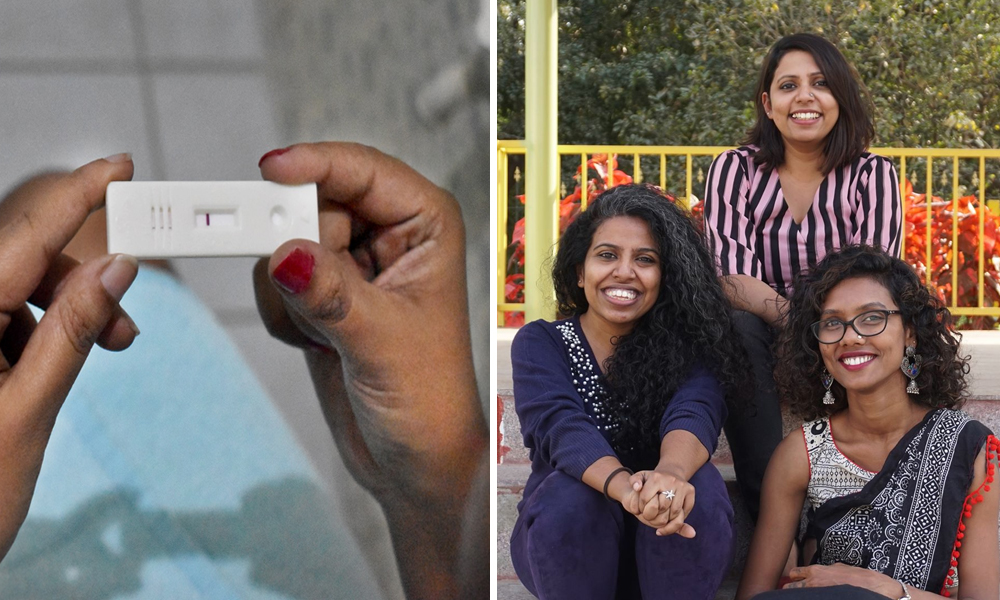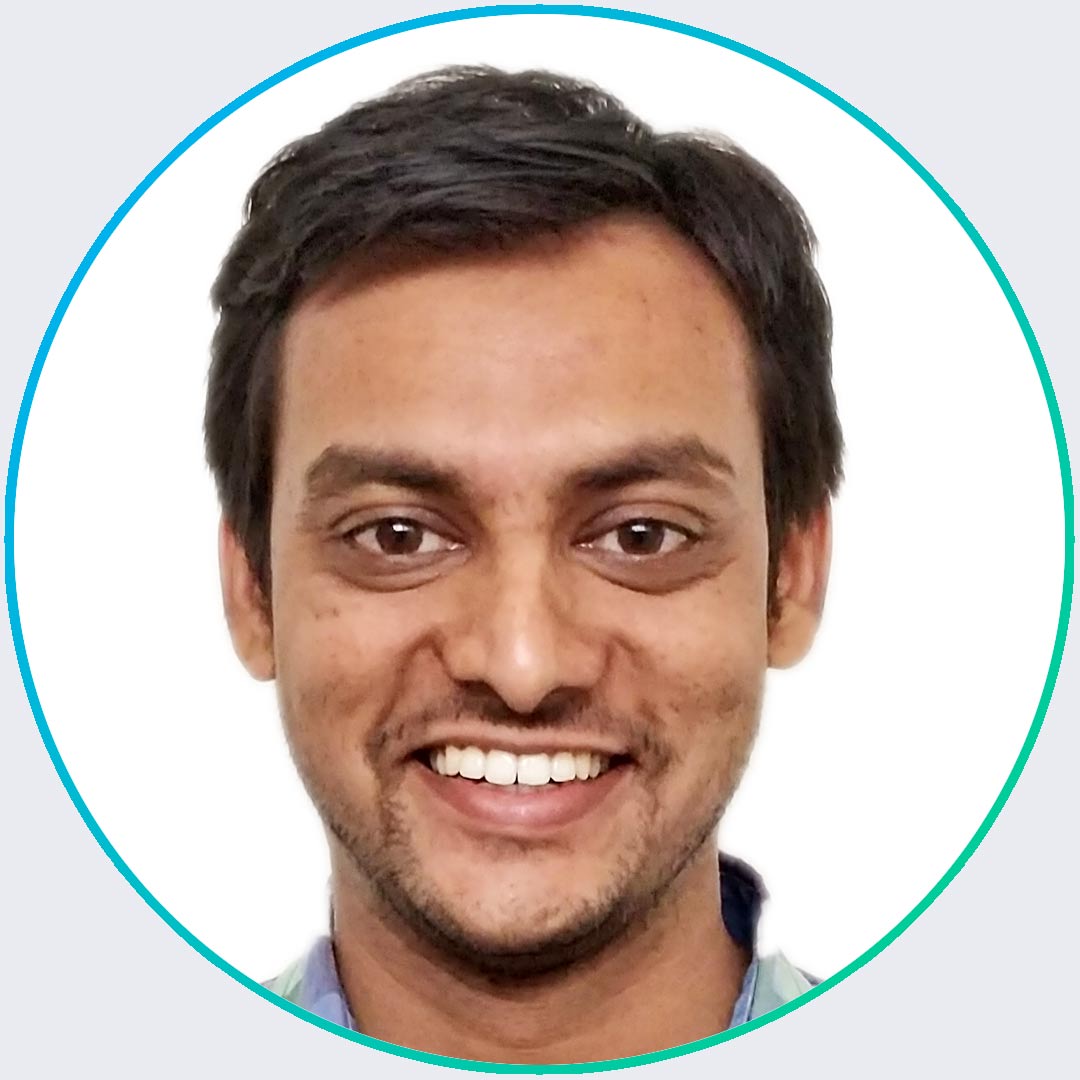
Corona Warriors: This Bengaluru Organisation Is Addressing Women's Sexual, Reproductive Health Amid Lockdown
Karnataka, 28 May 2020 12:39 PM GMT | Updated 30 May 2020 6:54 AM GMT
Editor : Shubhendu Deshmukh |
Shubhendu, the quint essential news junky, the man who loves science and politics in equal measure and offers the complete contrast to it by being a fan of urdu poetry as well.
Creatives : Abhishek M
" An engineer by profession, Abhishek is the creative producer of the team, graphic designing is his passion and travelling his get away. In more ways than one, he makes the content visually appealing."
Founded in 2016, Hidden Pockets is a platform that connects young people with trusted professionals in sexual and reproductive health care.
In the wake of the coronavirus lockdown, while the focus has largely been on curbing the spread of the virus and the economic crisis that has gripped India, conversations around sexual and reproductive health have taken a backseat. With the stigma around sexual and reproductive healthcare only worsening amid the lockdown, women across India have been cut off from access to contraceptives, abortions, and other reproductive and sexual health care.
In India, when the government released the list of essential services in late March, to be available in the first phase of the lockdown, abortion was not included on the list. It was only added later on April 14. Still, to date, many women are struggling to access these services.
"Significant levels of lockdown-related disruption over 6 months could leave 47 million women in low- and middle-income countries unable to use modern contraceptives, leading to a projected 7 million additional unintended pregnancies," said a recent study by United Nations Population Fund.
The same was reiterated by a recent report by the Foundation of Reproductive Health Services (FRHS), a Delhi-based NGO, which predicted that the lockdown could result in millions of unintended pregnancies, unsafe abortions, and even maternal deaths.
With women's access to reproductive healthcare significantly cut down and many doctors not catering to these services amid the lockdown, not to mention the stigma associated with single women seeking abortions, many women across the country do not even know where to go for help.
Amid this crisis, Hidden Pockets Collective, an all-women multimedia organisation that works on changing and building narratives around spaces, inclusiveness, pleasures and sexuality, has been helping women get access to sexual and reproductive healthcare.
"It was anyways not easy for women or single women to access reproductive healthcare services. Now, because of COVID, there is this extra layer of the danger of going to a health service," Jasmine Lovely George, founder of Hidden Pockets Collective, tells The Logical Indian.
Founded in 2016, Hidden Pockets is a platform that connects young people with trusted professionals in sexual and reproductive health care. While it started as a mapping project to identify non-judgmental healthcare facilities for women seeking abortions, today, it caters to all sexual and reproductive healthcare concerns. A lawyer, Jasmine found Hidden Pockets following a personal experience that highlighted the stigma around reproductive health.
"We used to be in Delhi before and I had once personally gone to access reproductive health service. The way I was treated and rebuked by the doctor, I was very fascinated by it. This was despite me being a lawyer, somebody who knows her rights," recalls Jasmine.
Since the lockdown was implemented, the collective has been relentlessly working to improve access to the sexual and reproductive health of young people during the lockdown. They audit the clinics that are functioning and are safe to go amid the pandemic and then refer these to the women.
"We have been trying to ensure that in this whole corona discussion, reproductive health, especially of young women in the country, should not be forgotten. There is this tendency that every time there is any kind of disaster, this is one of the things that gets first forgotten, saying that other things can wait," says Jasmine.
They also run a Whatsapp careline - 8861713567 - through which people can reach out to them for counselling, for queries regarding sexual or reproductive health, or find their nearest functioning service. Through their careline, they have helped around 400 women amid the lockdown.
"After the 20th of March, there has been a huge increase in the demand for abortion services, especially from the small towns. Our careline service provides services in local languages also. So, we saw a huge surge in those demands," says Jasmine.
With many young women have now gone home and are with their parents the helpline has also been receiving panic calls. On a daily basis, there has also been a 40 per cent increase in the calls. And these cases are mostly from Tier-I and Tier-II cities.
"We also saw a lot of panic calls. Most of our clients went back to their home villages. So, they are really panicking with their parents. Most of them have been skipping their periods, so they are really paranoid and panicking thinking if they are pregnant," says Jasmine.
"One of the main things we have been doing is ensuring that young women, mostly single women who have gone back home, they are not panicking, they are not stressed out, and they are able to access services," she adds.
The collective works with a network of doctors. When women reach out to them, they connect them to the doctors who are willing to provide services.
Jasmine says that there has also been an increase in calls from small towns as well. Many, who had no access to Whatsapp, also requested for their careline to be accessible by SMS. Currently, the careline is available in four languages - Hindi, English, Malayalam, Kannada.
Furthermore, there has been an increase in calls seeking counselling.
"We don't have this habit of counselling being taken seriously and counselling on aspects of reproductive health being taken seriously. So, more and more people have been coming for counselling, because there is nobody that they can talk to and they are mostly stuck at home with their parents," says Jasmine.
Additionally, the collective has also mapped clinics in Bangalore, Shimoga, Bellary, and Mysore to reach more rural crowd and make sexual and reproductive health accessible to the poor and marginalised community as well. While they are established in 7 cities - Delhi, Bengaluru, Jaipur, Ahmedabad, Hyderabad, Kochi, Chennai - they have also catered to 25 cities across the country.
Even before the lockdown, the collective has been working to spread awareness in urban slums in Bengaluru, Delhi, and Jaipur. For this, workshops and podcasts were their main sources, the latter also catered to blind people
"The collective also does sexuality education. We have created podcasts in Hindi and Kannada. That was only to start conversations where people don't find it easy or comfortable to talk about these things. So, we used to use these podcasts as conversation starters. When anybody who has a phone, they can have the podcast on their phone, and they become the carrier of information in that community," says Jasmine.
They have also been doing a series of research on menstruation, abortion and is aiming for a tech-based solution in the sexual and reproductive field.
 All section
All section














